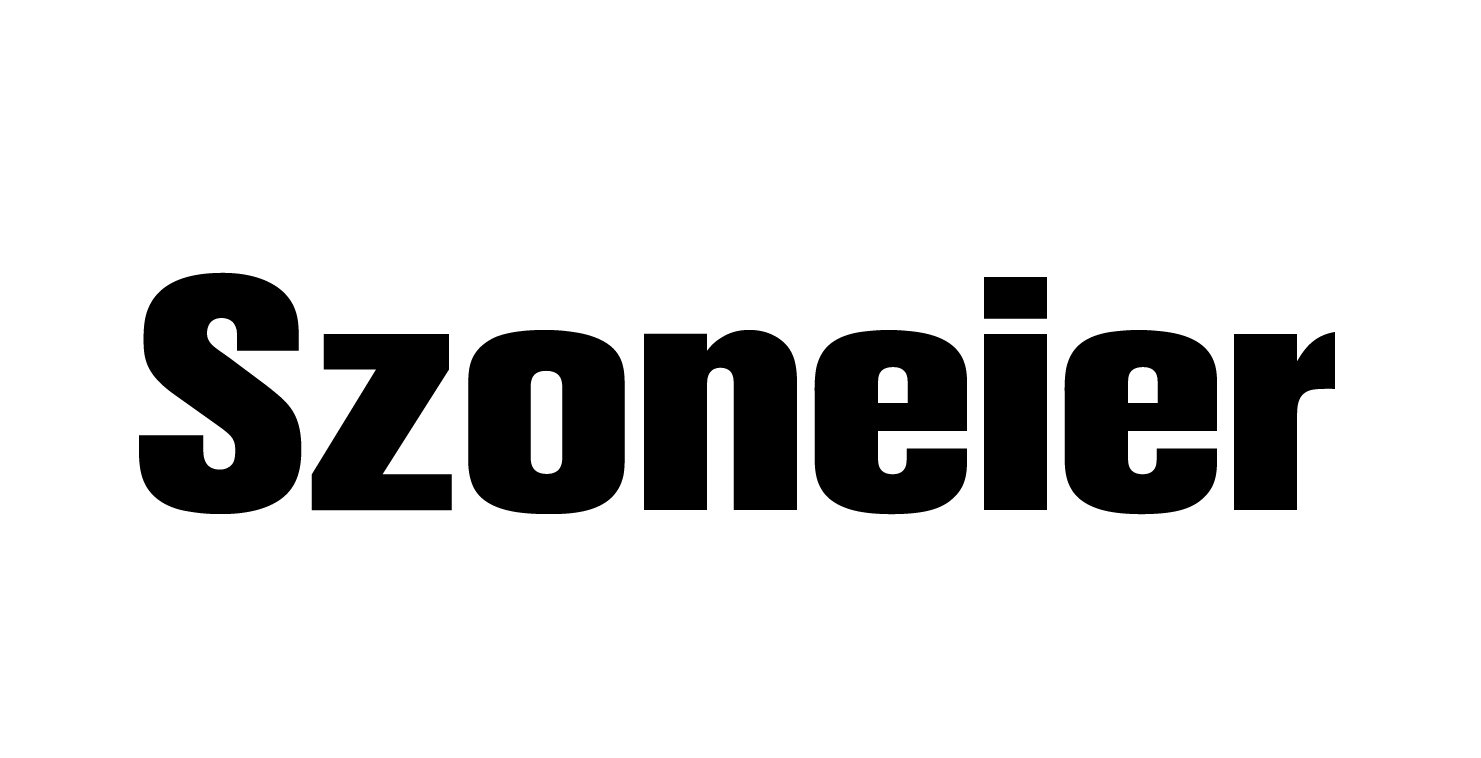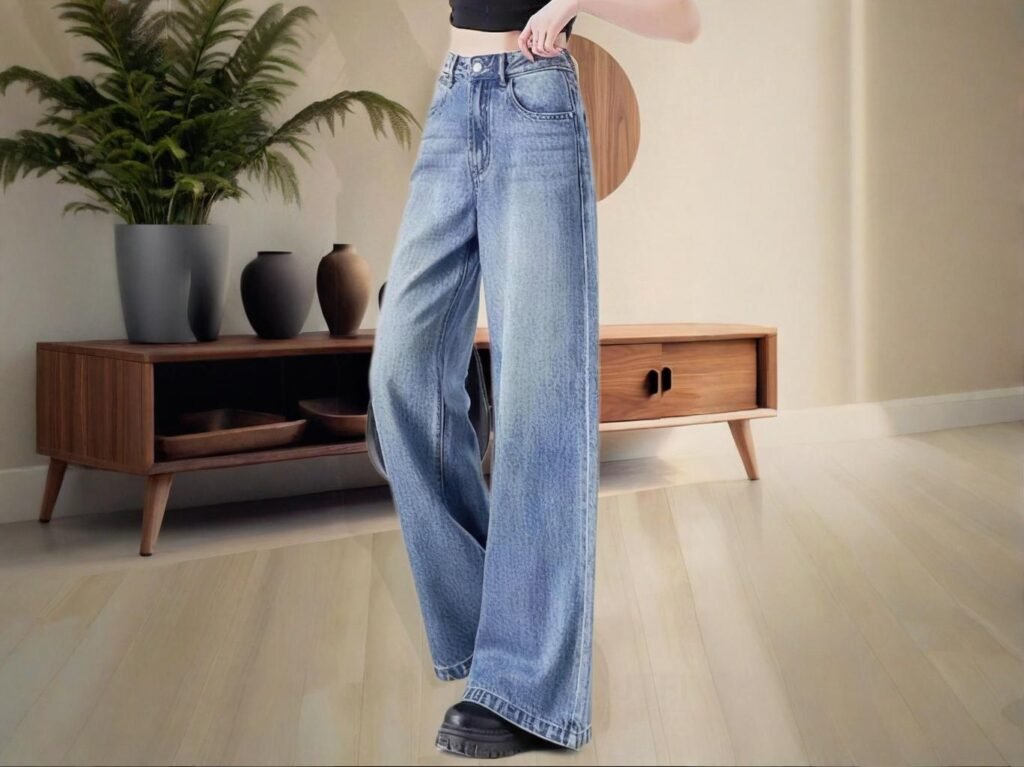
Sustainability isn’t just a buzzword—it’s reshaping the entire denim supply chain. For many brands, the question isn’t just if but how to transition from conventional jeans fabric to sustainable denim without sabotaging cost or quality. Sustainable denim uses certified materials like organic cotton or recycled fibers, relies on eco-conscious processes such as waterless dyeing, and meets standards like GOTS, GRS, or OEKO-TEX. Conventional denim prioritizes speed and cost efficiency, often using untreated cotton and traditional dyeing techniques.
If you’ve ever flipped through a fashion catalog and wondered why premium jeans are priced 20–40% higher—and what makes them “green”—this article breaks it down. From certifications to market demand, cost trade-offs to production tech, I’ll give you all the tools you need to make informed sourcing decisions.
What Defines Sustainable Denim Compared to Conventional Jeans Material?
Certified sustainable denim is distinguished from conventional jeans material by its source (organic, recycled), its supply chains (transparent, audited), and its production (low-water, no-hazardous-chemical processes). Sustainable denim uses eco-certified fibers (organic or recycled), undergoes low-impact processing (like laser fading, waterless dyeing), and is held to third-party standards like GOTS or GRS—unlike conventional jeans, which often ignore ecological and traceability concerns in favor of cost and speed.
What Makes Denim Truly Sustainable
1. Fiber Source
- Sustainable: Organic cotton (no pesticides), recycled cotton and polyester.
- Conventional: Conventional cotton drenched in chemicals.
2. Manufacturing Techniques
- Sustainable: Waterless dyeing, laser washes, ozone bleaches.
- Conventional: Slasher dyeing, stonewashing, or pumice-based washes.
3. Supply Chain Traceability
- Sustainable: Full-chain traceability using standards like GOTS or GRS.
- Conventional: Often opaque, with limited visibility into raw material origins.
4. Chemical Management
- Sustainable: Prioritizes chemical restrictions—OEKO-TEX, ZDHC compliance.
- Conventional: May use unregulated dyes and finishes.
5. Package & Waste Management
- Sustainable: Emphasis on recycling and minimal packaging.
- Conventional: Higher waste volumes and little to no circularity plans.
Which Global Certifications Matter Most for Sustainable Denim?
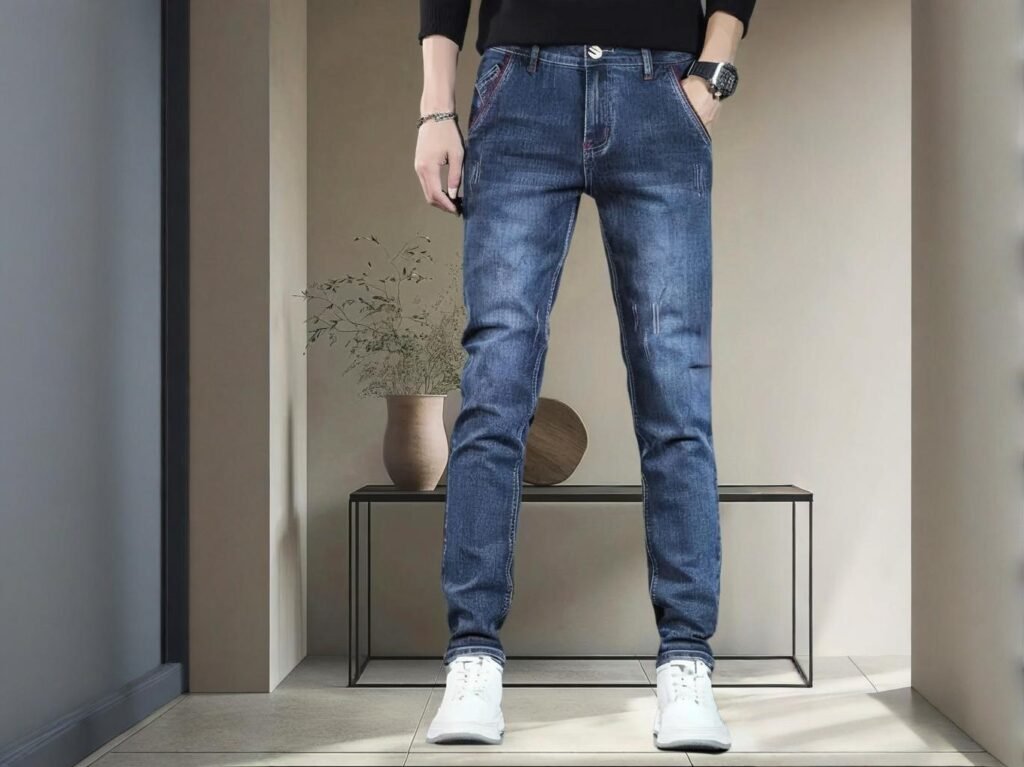
The most impactful certifications for sustainable denim are GOTS, GRS, OEKO‑TEX, Bluesign, and ZDHC. Each brings trust, compliance, and differentiation to your brand—and often comes at a premium. GOTS certifies organic fiber and ethical production; GRS ensures recycled content traceability; OEKO‑TEX guarantees chemical safety; Bluesign checks resource management; ZDHC enforces zero-discharge standards. These certifications are key for eco-conscious supply chains and brand credibility.
Certification Breakdown
| Certification | Focus Area | Minimum Criteria | Brand Value |
|---|---|---|---|
| GOTS | Organic fiber, social compliance | ≥70% organic + audited production | High eco-social credibility |
| GRS | Recycled content & chain traceability | ≥50% recycled + responsible dyeing | Sustainability commitment with proof |
| OEKO‑TEX 100 | Chemical safety | Restricted substances thresholds | Consumer trust in fabric safety |
| Bluesign | Resource efficiency, worker protection | Approved chemical & energy management | High industry standard for eco practices |
| ZDHC | Zero hazardous chemical discharge | Must comply with MRSL lists | Key for EU and global regulations |
How Do Production Methods Differ Between Eco‑Friendly and Traditional Denim?
Eco‑friendly denim employs innovative, water-saving, chemical‑reducing, and energy‑efficient methods like laser finishing, ozone bleaching, and foam dyeing. In contrast, conventional denim uses outdated processes such as stone‑washing, pumice washes, and multiple hot dye cycles—resulting in high water and resource consumption. While traditional denim uses labor‑ and water‑intensive processes like stone‑washing and slasher indigo dyeing, sustainable denim offsets environmental impact with ozone, laser, foam, and enzyme technologies—cutting water use by up to 90% and reducing chemicals up to 80%.
Comparing Eco vs. Conventional Processes
1. Water Usage
| Process | Conventional | Eco‑Friendly |
|---|---|---|
| Dyeing & Washing | 50–100 L per m² | 1–10 L per m² (foam/ozone) |
| Finishing Techniques | Stone, enzymes | Laser, ozone, foam |
2. Chemical Input
- Conventional: Uses pumice stones, harsh enzymes, and toxic brighteners.
- Eco‑Friendly: Replaces chemicals with ozone, cold enzymes, and certified inputs.
3. Energy & Emissions
- Conventional: Hot baths, extended tumble drying.
- Eco: Ozone chambers, space‑saving laser tech, & reduced heat use.
4. Waste Management
- Conventional: Heavy sludge loads with chemo‑contaminants.
- Eco-Friendly: Closed-loop water systems, minimal discharge with MRSL compliance.
5. Case Examples
- Foam Dyeing: India’s Raymond UCO has cut water usage by 60% using foam dye.
- Laser Fading: Turkish mill Bossa eliminated thousands of liters of rinse water weekly using laser distressing.
Is There a Cost Premium for Certified Sustainable Denim?
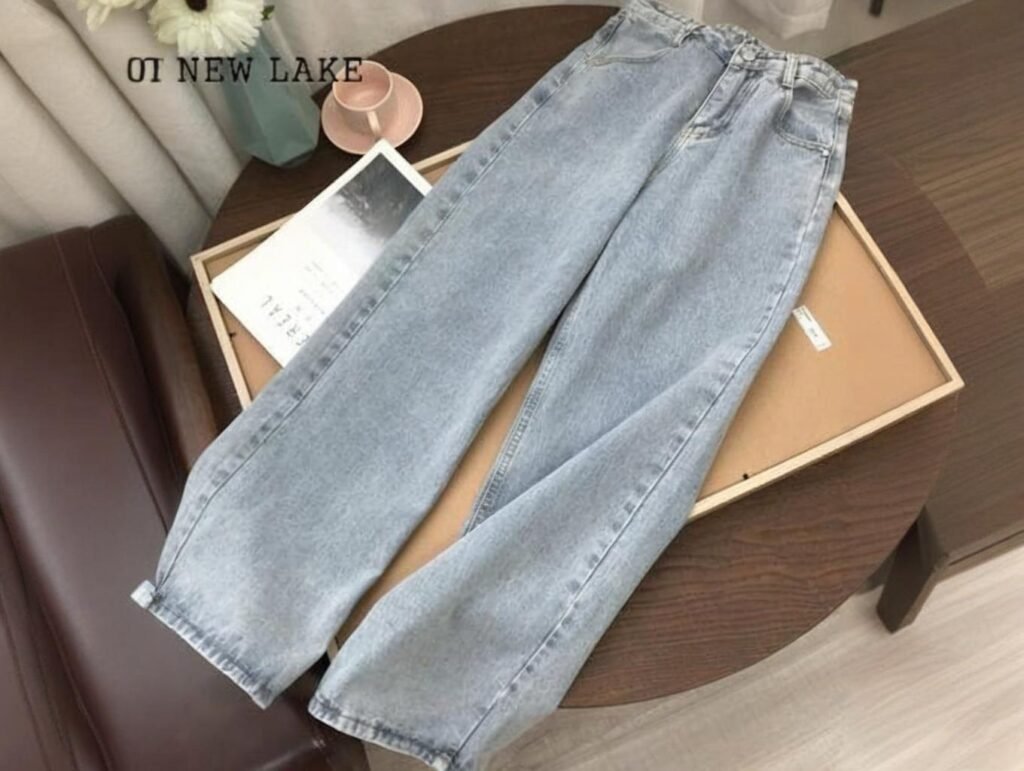
Yes—certified sustainable denim typically costs 15–40% more than conventional denim. This premium covers organic inputs, eco-processing tech, certifications, and improved labor practices. However, long‑term ROI often justifies higher costs through brand value and regulatory compliance. Certified sustainable denim can cost up to 40% more due to certified fibers, advanced eco-processing, and compliance audits. Despite the premium, brands gain in consumer trust, reduced resource dependency, and market differentiation.
Cost Elements of Sustainability
1. Cost Breakdown
| Cost Driver | Conventional Denim | Sustainable Denim |
|---|---|---|
| Organic/Recycled Fiber | $1.20–1.80 | $2.00–2.80 |
| Eco Processing | +5–8% | Included |
| Certification & Traceability | None | +$0.10–0.30/m |
| Compliance & Audits | Minimal | +$0.05–0.15/m |
| Total Fabric Cost | $2.00–4.00 | $2.50–6.00 |
2. Long-Term Returns
- Brands charge 10–20% more for eco-fabrics.
- Consumers often prefer paying premiums for certified products.
3. Comparative Examples
- Kering Group: Cut water use 30% by investing in sustainable fabrics.
- Levi’s Water<Less™: Justifies higher cost with brand equity and reduced production costs.
4. ROI Perspective
- Sustainable denim pricing supports ESG branding.
- Risk mitigation via confined commodity pricing and growing consumer trust.
What Are the Environmental Impacts of Conventional Denim Manufacturing?
Conventional denim manufacturing is one of the most environmentally damaging processes in the textile industry. It consumes enormous amounts of water, uses toxic dyes and chemicals, emits greenhouse gases, and produces waste sludge and microplastic pollution. A single pair of traditional jeans can use over 7,000–10,000 liters of water from cotton farming to finishing. Conventional denim manufacturing causes high water consumption, chemical pollution, and carbon emissions—making it one of the least sustainable textile processes unless replaced with eco-innovations.
Denim’s Environmental Burden
1. Water Footprint
| Stage | Liters per Jeans (Avg) |
|---|---|
| Cotton Farming | 6,000–8,000 L |
| Indigo Dyeing & Washing | 500–1,000 L |
| Finishing (Stone/Ozone) | 100–200 L |
- It takes ~2,000 gallons of water to make one pair of traditional jeans.
2. Chemical Pollution
- Conventional dyeing uses aniline-based indigo, sodium hydrosulfite, and heavy metals.
- Improper discharge leads to aquatic toxicity and eutrophication in rivers (e.g., China’s Pearl River).
3. Carbon Emissions
- High dependency on fossil fuel-powered heating.
- Drying, tumbling, and transport contribute up to 33.4 kg CO₂ per pair of jeans.
4. Microplastic Release
- Polyester-cotton blended jeans shed microfibers during washing.
- These fibers contribute to 1.4 million trillion microfibers released into oceans annually.
5. Case Study: Xintang, China
- Known as the “Jeans Capital,” Xintang saw massive environmental degradation from unchecked denim production.
- Rivers turned indigo blue, and groundwater became undrinkable due to chemical dumping.
Do Sustainable Denim Fabrics Perform Differently in Garment Production?
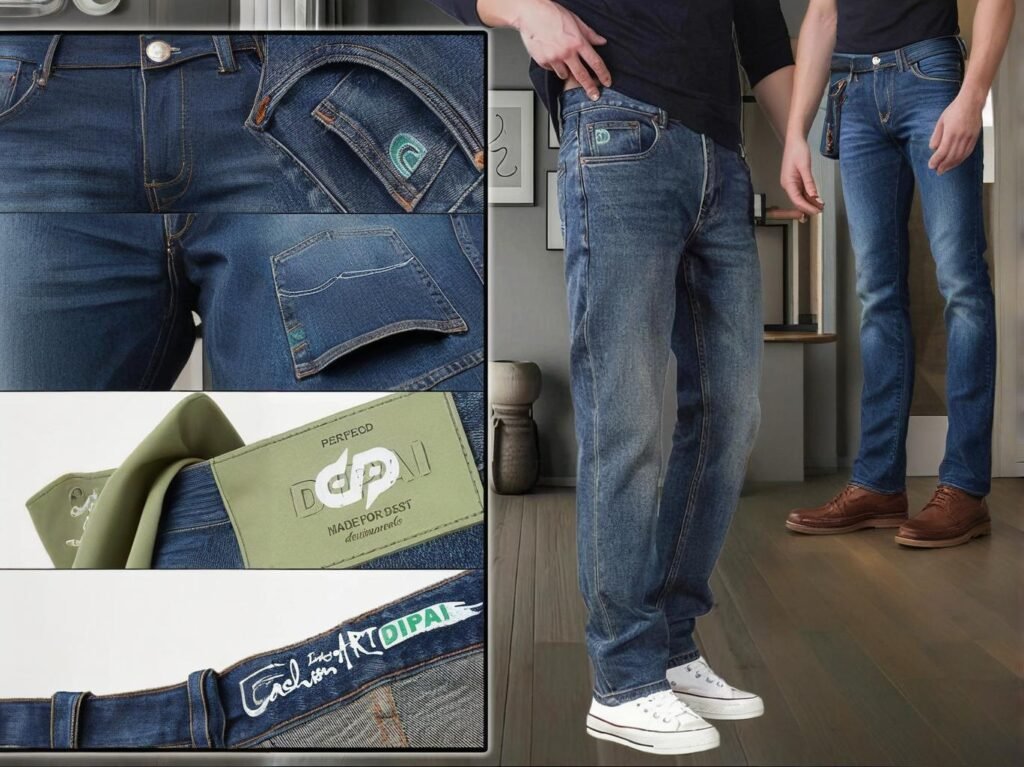
In terms of strength, colorfastness, shrinkage, and breathability, sustainable denim performs just as well—and in some cases, even better—than conventional denim. The key is in choosing certified yarns and finishing technologies that meet both durability and design needs. Sustainable denim fabrics match or exceed traditional denim in durability, colorfastness, and design versatility—offering ethical benefits without compromising performance.
Performance Evaluation Metrics
1. Colorfastness Comparison
| Fabric Type | Dry Rubbing | Wet Rubbing | Light Exposure |
|---|---|---|---|
| Conventional Denim | 3–4 Grade | 2–3 Grade | 3 Grade |
| Sustainable Denim | 4–5 Grade | 3–4 Grade | 4 Grade |
Ratings based on ISO 105 standards (higher is better).
2. Tensile Strength
- Conventional: ~400–600 N warp strength
- Sustainable (organic/recycled): ~500–700 N warp strength
3. Shrinkage & Dimensional Stability
- Certified sustainable fabrics (like GOTS-certified organic cotton) show <3% shrinkage after 3 washes, while conventional denim may shrink up to 6%.
4. Breathability & Comfort
- Sustainable blends (hemp-cotton, Tencel-cotton) enhance moisture-wicking and airflow.
5. Real-World Brand Examples
- Outerknown uses organic cotton blends with Spandex for better stretch recovery.
- Nudie Jeans reports lower returns due to fabric wear in sustainable denim lines.
Are Certifications Like GOTS and OEKO-TEX Essential for Denim?
Yes. For fashion brands that prioritize ethical sourcing, supply chain transparency, and environmental compliance, certifications like GOTS, OEKO-TEX, and Global Recycled Standard (GRS) are crucial. They are often required by retailers, help mitigate greenwashing, and serve as proof of compliance with global standards. Certifications such as GOTS, OEKO-TEX, and GRS are essential for sustainable denim sourcing—they verify eco-safety, ethical labor, and material authenticity for fashion brands and buyers.
What Each Certification Covers
| Certification | Scope of Coverage | Applicable to Denim? | Key Advantages for Brands |
|---|---|---|---|
| GOTS | Organic fibers, environmental & social criteria | ✔️ Yes | End-to-end transparency, trusted by retailers globally |
| OEKO-TEX | Harmful substance testing | ✔️ Yes | Ensures consumer safety from toxic dyes & chemicals |
| GRS | Recycled content & supply chain traceability | ✔️ Yes | Verifies use of recycled denim fibers, chain-of-custody assurance |
| BCI | Better cotton farming practices | Partial | Improves cotton supply sustainability, but less strict than GOTS |
Why It Matters for B2B Buyers:
- Retail Compliance: Many large retailers (Zalando, Nordstrom) require certified textiles.
- Green Marketing Claims: Certification enables brands to legally market “organic” or “recycled.”
- Investor Appeal: ESG compliance attracts more B2B buyers and funders with sustainability mandates.
How Can SzoneierFabrics Help You Source Sustainable Denim at Scale?
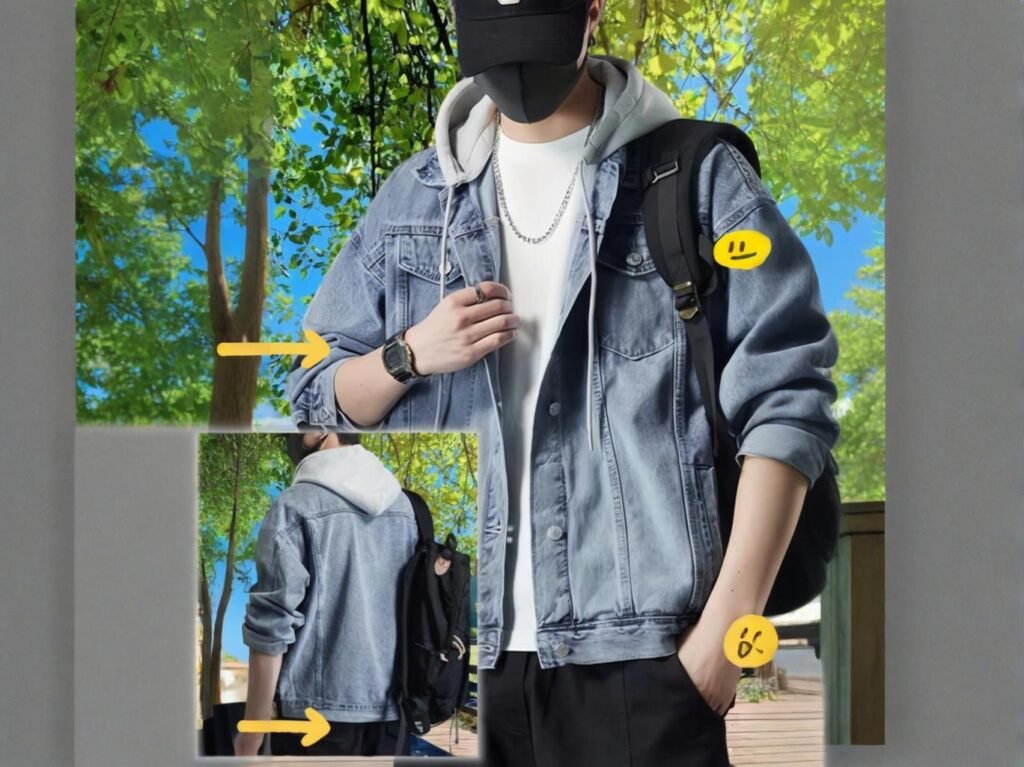
SzoneierFabrics offers an end-to-end solution for brands seeking certified, custom-dyed, and bulk-produced sustainable denim. With in-house fabric R\&D, fast lead times, and flexible low MOQs, we enable small-to-medium and premium labels to compete in the sustainable fashion arena. SzoneierFabrics provides certified sustainable denim solutions with low MOQs, quick sampling, and full customization for brands sourcing eco-friendly jeans fabrics at scale.
Why Choose SzoneierFabrics as Your Denim Supplier
1. Customization Capabilities
- Yarn options: GOTS-certified organic cotton, GRS recycled denim, hemp-cotton blends
- Dyeing: Reactive, sulfur-free indigo, natural plant-based dyeing
- Finishing: Ozone wash, laser distressing, waterless enzyme finishes
2. Fast & Scalable Production
| Service | Lead Time (Avg) | MOQ |
|---|---|---|
| Lab Dips & Sampling | 3–7 days | 10 meters |
| Custom Bulk Orders | 15–30 days | 300 meters/start |
3. Certifications Offered
- GOTS, OEKO-TEX, GRS, RCS, and more
- All backed by documentation and batch traceability
4. Global Brand Case Studies
- Australian Boutique Denim Label sourced 500m/month of organic cotton stretch denim in 6 shades with water-saving dye process.
- Nordic Private Label Client scaled from 300m pilot order to 8,000m quarterly with GRS-blended raw denim for e-commerce lines.
Ready to Customize Your Sustainable Denim Fabric?
At SzoneierFabrics, we empower your fashion brand with the denim you envision—whether it’s 100% organic indigo, vintage-washed hemp blends, or post-consumer recycled cotton. We provide free samples, fast sampling, and full certification to help you stand out in today’s eco-conscious market.
